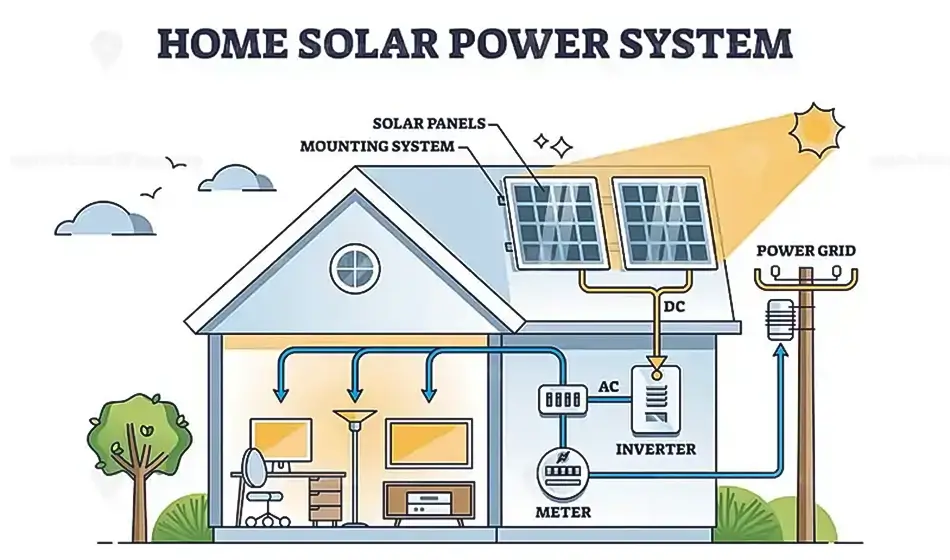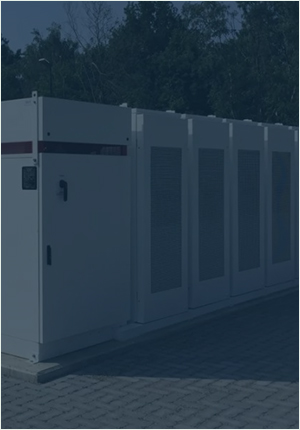2025-02-19 Author : CXJPowers
Now, the focus of all Chinese lithium battery storage manufacturer: Will Trump'sinauguration as US President affect Home Solar Battery Storage Cost in 2025? This is not ajoke. Since Trump won the election, there have been frequent reports that import and exporttariffs will change, and suppliers and customers are anxiously awaiting the results.
In 2025, the price of home solar battery storage systems will vary by brand, capacity and installation complexity. Here is the average price range for home solar battery storage systems of different capacities (5kWh, 10kWh, 15kWh and 20kWh):
| Battery Capacity | Average Price Range (USD) |
| 5kWh | $2,000 – $3,750 |
| 10kWh | $4,000 – $7,500 |
| 15kWh | $6,000 – $11,250 |
| 20kWh | $8,000 – $15,000 |
These prices typically include equipment and installation costs, but do not include possible tax credits or incentives.
It is important to note that changes in US import and export tariffs in 2025 may affect the cost of solar battery energy storage systems.
For example, the average price of a Tesla Powerwall 2 (13.5kWh) is about $8,400, and the average price of an LG 10H Prime (9.6kWh) is about $6,000.

The return of former President Trump to the U.S. presidency has reignited discussions surrounding tariffs, which are expected to impact the cost of lithium-ion batteries used in home solar storage. Import and export tariffs could significantly affect both manufacturers and consumers, as global supply chains adjust to these new conditions. As tariffs increase or decrease, the cost of lithium-based batteries is likely to be influenced by shifts in manufacturing, distribution, and market demand.
How will the cost of ordering home solar battery energy storage from China change as US import and export tariffs adjust? Below is a price comparison table, with the model number pointing to the corresponding product page.
| Battery | Starting Cost (USD) | MOQ | Voltage | Capacity | Power Energy (kWh) |
| CX-WM001 | $414.99(Overseas warehouse) | 2 | 24V | 100Ah | 2.4kWh |
| CX-WM005 | $433.99 | 5 | 48V | 120Ah | 5.5kWh |
| CX-WM006 | $946.99 | 5 | 48V | 150Ah | 5.76kWh |
| CX-WM009 | $744.99(Overseas warehouse) | 2 | 51.2V | 100Ah | 5.12kWh |
Prices for these batteries will likely shift depending on tariff changes. For example, if tariffs on imports from countries like China increase, battery prices might go up. Conversely, the easing of trade tensions and the reduction of tariffs could result in more affordable prices for consumers in the U.S. market.
The cost of lithium storage batteries directly correlates with U.S. trade policy and tariffs. As tariffs fluctuate, it will affect not only the cost of raw materials, but also the selling prices of other branded products such as the Tesla Powerwall and LG 10H Prime. Tariff adjustments could lead to more competitive pricing as manufacturers and suppliers adjust to the cost of doing business in a post-tariff environment.

While many predict that rising tariffs may cause a temporary price hike, the long-term outlook for home solar battery storage remains positive. The growing emphasis on renewable energy sources suggests that, despite higher upfront costs, consumers are likely to continue seeking solutions like home solar battery storage.
Home Solar Battery Benefits:
Increased Energy Independence: Reduces reliance on the grid.
Despite the short-term impact of tariffs, the demand for home solar battery storage is expected to remain strong. The transition to clean energy is a long-term goal, and consumers are increasingly willing to invest in technology that aligns with their environmental and economic values.
In conclusion, home solar battery storage costs will see fluctuations in 2025 due to the ongoing tariff changes and global supply chain adjustments. The cost of solar cells can vary significantly depending on capacity, brand, and installation costs. According to recent data, the average cost of a solar cell system ranges from 7,000 to14,000, including installation. However, with possible tariff adjustments in 2025, these costs could increase, especially for cells imported from countries such as China.
Factors Affecting Costs:
Consumers should expect some price increases but also a continued focus on renewable energy alternatives. While Trump's reelection and subsequent tariff changes could affect the cost of home solar energy storage, the fundamental advantages of these systems ensure they remain a valuable investment for many households. As always, staying informed and adjusting purchases to align with shifting market conditions will be key in securing the best deals. Understanding policy changes and market trends is critical for consumers and manufacturers as they navigate the changing landscape of solar energy storage.
For more information or to inquire about CXJPowers lithium home battery solutions, feel free to contact us at CXJPowers for factory-direct pricing and fast delivery!



